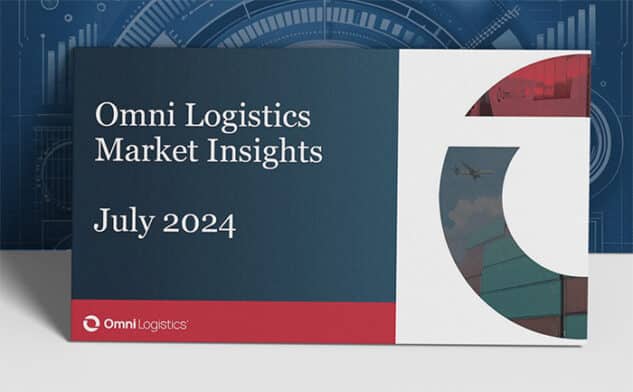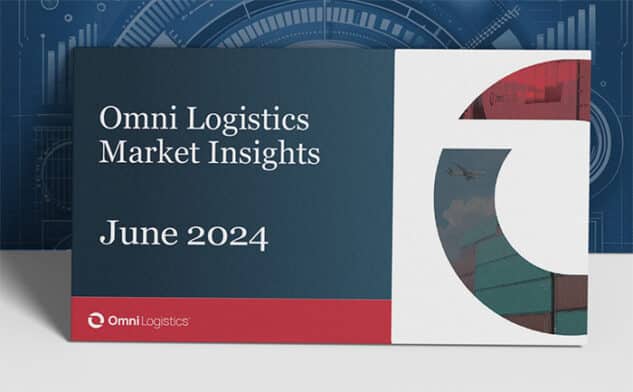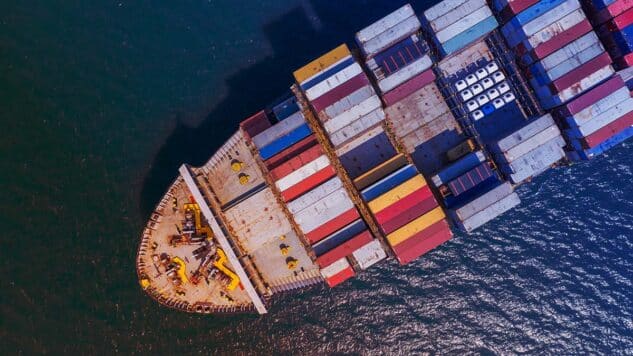Sustainability in Logistics
Carbon emissions are the biggest concern when it comes to sustainability in the logistics industry. Our industry relies on moving goods from one place to another using carbon-emitting vehicles such as airplanes, trucks, and ocean container ships. Because of that, the logistics industry is one of the largest impactors on carbon emissions. However, the need for goods to be shipped around the world is critical to sustaining our global economy and isn’t going away. How can we counteract our impact on the planet while providing services that billions of people depend on?
What can we change?
There are three categories of emissions that businesses can evaluate to make their business more sustainable: Scope 1, 2, and 3 emissions.
The EPA Center for Corporate Climate Leadership defines each of the scopes as the following:
- Scope 1 emissions are direct greenhouse (GHG) emissions that occur from sources that are controlled or owned by an organization.(https://www.epa.gov/climateleadership/scope-1-and-scope-2-inventory-guidance)
- Scope 2 emissions are indirect GHG emissions associated with the purchase of electricity, steam, heat, or cooling.(https://www.epa.gov/climateleadership/scope-1-and-scope-2-inventory-guidance)
- Scope 3 emissions are the result of activities from assets not owned or controlled by the reporting organization, but that the organization indirectly impacts in its value chain. (https://www.epa.gov/climateleadership/scope-3-inventory-guidance)
Scopes 1 and 2 are within a business’s direct power to improve. This includes finding alternative electricity methods for facilities including wind and solar power, limiting water usage and refrigerants, and recycling and reduction of waste programs. Logistics companies have a huge responsibility to improve in these areas because this is where we have the most control.
Scope 3 is more difficult to change because it involves parties outside of the business. This includes carriers and vendors that 3PL logistics companies work with that move freight including airlines, trucking companies, and ocean container freight companies. Electric and hybrid modes of transportation are starting to hit the roads, but this new technology (and the infrastructure to support it) is slowly making its way across the industry.
One impactful way logistics companies can implement positive changes to counteract scope 3 emissions is to offset carbon emissions.
What is Carbon Offsetting
Becoming carbon neutral is no small feat. To do this, every unit of carbon that is emitted needs to be offset with negative emissions. Negative emissions are activities that remove carbon from the environment such as planting trees. Carbon emissions can also be offset with investments in wind and solar farms that can generate energy for the power grid rather than taking from it.
The Paris Agreement lays out a framework for countries to become carbon neutral by 2050. The Climate Pledge outlines what actions companies must put into practice to become carbon neutral by 2040.

Customer Lead Change
Few companies were paying attention to carbon emissions 10-15 years ago. That is no longer the case. Customers, investors, and a wide variety of stakeholders are taking a stand for the planet by using their dollars and spend to influence positive change for the environment.
There are more and more expectations for businesses to reduce their carbon footprint. As a result, an increasing number of businesses are developing robust sustainability goals. There is a huge push for more and more businesses, including logistics companies, to implement environmentally friendly and sustainable practices.
Just in the last 5 years, we have started to see changes within the logistics industry due to customers wanting sustainable practices to be introduced. Customers are weighing multiple factors on which logistics company to work with and are now including environmental impact as a deciding factor. Request for proposals now ask questions on environmental impact and expect, at the very least, logistics companies to be thinking about how to introduce sustainable practices in their business strategy.
Customers are also influencing who logistics companies are doing business with as they evaluate their own downstream supply chains. As a result, scope 3 emissions also become an important factor to weigh. That means logistics companies must begin to look at everything that’s downstream including vendor and carrier carbon emissions.
This trend shows that logistics companies and other businesses that do not implement sustainable practices will be left behind.
Sustainability Goals
Logistics companies can support their customers’ sustainability goals by implementing their own. There are many ways logistics companies can implement sustainable practices in their corporate strategy such as introducing load consolidation techniques to reduce carbon footprint, planting trees to offset carbon emissions, and investing in alternative energies to run facilities.
Omni Logistics is leading the way with many practices already established or in the works:
- Being the first North American logistics company to sign the Climate Pledge for carbon neutrality by 2040
- 100% wind powered headquarters
- Practicing carbon footprint reduction strategies including increasing lane efficiency and load consolidation methods
- Evaluating carbon offsets
- Committed to increasing our green office supplies
- Evaluating green vehicles including trucks and forklifts
- Future implementation of “Omni Green” program to help with customers’ sustainability goals
- Investing in carbon reporting platforms to allow customers to measure, analyze, and report data in real time and improve their carbon footprint with one click
Together We Succeed
The logistics industry has a long way to go in terms of sustainable practices. However, progress is slowly making way. When we begin assessing our impact on the planet, we can in turn make improvements. Working with other businesses, customers, investors, and stakeholders will lead to more positive changes for the environment over time. We succeed when we all commit to sustainable practices together.



